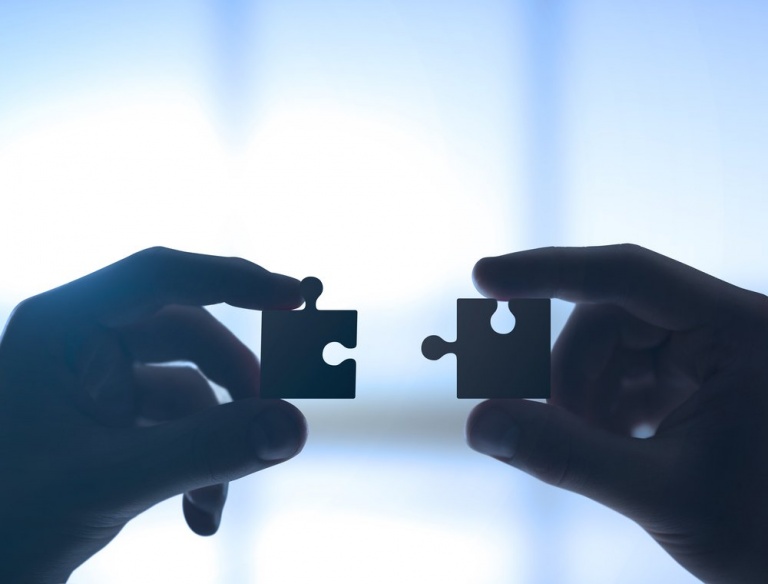What You Have Doesn't Define You, But Rather Who You Are

When someone defines themselves they usually begin by saying “I am …” I’m a psychologist, a cook, a loving person, grumpy… But this is not true, no one is essentially anything more than a person. Whoever defines themselves in this way forgets many other aspects of themselves.
Nobody is totally a psychologist, nor totally a cook, affectionate or grumpy. These are just particular characteristics that develop from time to time in our lives, but don’t have to define us.
It is much more correct to say that “sometimes I practice psychology, other times I prepare a good dish, sometimes I am loving and occasionally I behave like a grump”
In this way, we do not present ourselves completely, as if that part of us which we are talking about constituted our total self, when in fact they are just parts of our whole person, which is far more complex.
Dr. Albert Ellis, the father of rational emotive therapy, taught us that it is preferable to use the verb “to have” than the verb “to be”, which involves evaluating particular behaviors or specific actions of individuals, but not the whole person. It is not the same to say “sometimes I have had bad temper with my wife” as saying”I’m a complete idiot with my wife.”
Who will feel worse about themselves? Clearly, one that evaluates him or herself completely will have a much lower self-esteem than people who are aware that an attitude, quality or ownership does not define them as human beings.
What defines you?
The unconditional acceptance that Ellis raised claims that humans do not fall into the trap of defining a function of external, redundant or perishable features, as they could with physique, fame, success, money or status. Quite the opposite of this, people have to learn to accept themselves apart from all this and to love themselves unconditionally for the fact of being human.

According to Ellis, all human beings possess the same value regardless of our qualities or defects since it is impossible to calculate the value of a person. There is no rule to measure it, but unfortunately our culture asserts that a person is worth more or less than another depending on certain features or possessions.
This does nothing but lead to absurd comparisons to others. Our self-esteem plummets as our happiness is based on what we supposedly should or should not have…we could list many diseases that have to do with this absence of unconditional acceptance!
Imagine if someone is compared to another because the other has achieved far more than professional success. This person is giving such great importance to professional success that he makes it define him completely, even though it only a small area of his life.
If we inquire, surely we find irrational thoughts such as “I am worthless”, “I’ll never get it”, “I’m useless for failing to be someone in life”, etc.
This person will feel very unhappy, surely throw in the towel, stop fighting for what they want and reaffirm their low self-esteem.

The same thing would not have happened, if he had accepted himself without that condition. That is, if his thoughts had been more rational, “I have not achieved that, but I have other important things in life”, “He who has more success does not mean that I am useless”, “My value as a person is not based on professional achievement”…
As you evaluate yourself, so will you evaluate
To achieve good unconditional acceptance of oneself, one must also accept others unconditionally. The key is to not give value nor subtract it, whoever the person we meet may be: someone unattractive, someone smart, someone famous or the poor person on the corner. Everyone has the same value.
This is a very important point, because it causes relationships with others improve a lot. If we do not judge as much, if we don’t evaluate others for what they do, neither will we do it with ourselves and that frees us from such enormous pressures that are sometimes instilled in us.

Some strategies that you can perform with others are: not being so demanding and wanting to change the other person, forgiving and understanding that we all make mistakes sometimes and not judging others on universal terms if not only their particular conduct has affected us and loving people for being human like us.
These techniques have a positive impact on you because you will create the habit of unconditional acceptance and will not be so demanding with others, with yourself or with life in general. All which generates much healthier emotions. And do not forget that who you are defines you, not what you have…
7 Teachings of Ellis Albert
Albert Ellis, through its rational emotive therapy, teaches us that we ourselves are the owners of our emotions and persevere in rationality… More »
When someone defines themselves they usually begin by saying “I am …” I’m a psychologist, a cook, a loving person, grumpy… But this is not true, no one is essentially anything more than a person. Whoever defines themselves in this way forgets many other aspects of themselves.
Nobody is totally a psychologist, nor totally a cook, affectionate or grumpy. These are just particular characteristics that develop from time to time in our lives, but don’t have to define us.
It is much more correct to say that “sometimes I practice psychology, other times I prepare a good dish, sometimes I am loving and occasionally I behave like a grump”
In this way, we do not present ourselves completely, as if that part of us which we are talking about constituted our total self, when in fact they are just parts of our whole person, which is far more complex.
Dr. Albert Ellis, the father of rational emotive therapy, taught us that it is preferable to use the verb “to have” than the verb “to be”, which involves evaluating particular behaviors or specific actions of individuals, but not the whole person. It is not the same to say “sometimes I have had bad temper with my wife” as saying”I’m a complete idiot with my wife.”
Who will feel worse about themselves? Clearly, one that evaluates him or herself completely will have a much lower self-esteem than people who are aware that an attitude, quality or ownership does not define them as human beings.
What defines you?
The unconditional acceptance that Ellis raised claims that humans do not fall into the trap of defining a function of external, redundant or perishable features, as they could with physique, fame, success, money or status. Quite the opposite of this, people have to learn to accept themselves apart from all this and to love themselves unconditionally for the fact of being human.

According to Ellis, all human beings possess the same value regardless of our qualities or defects since it is impossible to calculate the value of a person. There is no rule to measure it, but unfortunately our culture asserts that a person is worth more or less than another depending on certain features or possessions.
This does nothing but lead to absurd comparisons to others. Our self-esteem plummets as our happiness is based on what we supposedly should or should not have…we could list many diseases that have to do with this absence of unconditional acceptance!
Imagine if someone is compared to another because the other has achieved far more than professional success. This person is giving such great importance to professional success that he makes it define him completely, even though it only a small area of his life.
If we inquire, surely we find irrational thoughts such as “I am worthless”, “I’ll never get it”, “I’m useless for failing to be someone in life”, etc.
This person will feel very unhappy, surely throw in the towel, stop fighting for what they want and reaffirm their low self-esteem.

The same thing would not have happened, if he had accepted himself without that condition. That is, if his thoughts had been more rational, “I have not achieved that, but I have other important things in life”, “He who has more success does not mean that I am useless”, “My value as a person is not based on professional achievement”…
As you evaluate yourself, so will you evaluate
To achieve good unconditional acceptance of oneself, one must also accept others unconditionally. The key is to not give value nor subtract it, whoever the person we meet may be: someone unattractive, someone smart, someone famous or the poor person on the corner. Everyone has the same value.
This is a very important point, because it causes relationships with others improve a lot. If we do not judge as much, if we don’t evaluate others for what they do, neither will we do it with ourselves and that frees us from such enormous pressures that are sometimes instilled in us.

Some strategies that you can perform with others are: not being so demanding and wanting to change the other person, forgiving and understanding that we all make mistakes sometimes and not judging others on universal terms if not only their particular conduct has affected us and loving people for being human like us.
These techniques have a positive impact on you because you will create the habit of unconditional acceptance and will not be so demanding with others, with yourself or with life in general. All which generates much healthier emotions. And do not forget that who you are defines you, not what you have…
7 Teachings of Ellis Albert
Albert Ellis, through its rational emotive therapy, teaches us that we ourselves are the owners of our emotions and persevere in rationality… More »
This text is provided for informational purposes only and does not replace consultation with a professional. If in doubt, consult your specialist.







